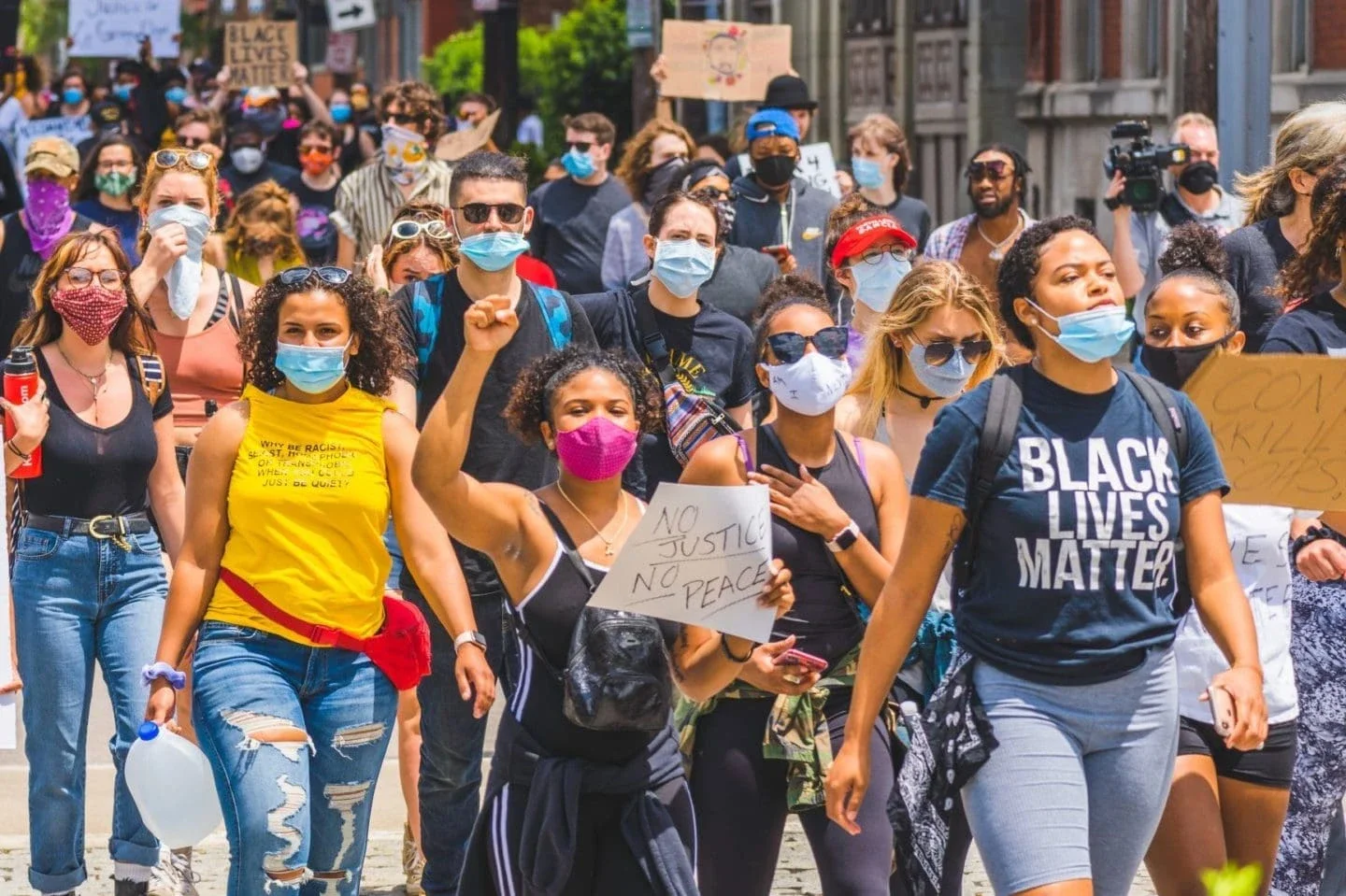In 1967, Dr. Martin Luther King, Jr. gave a speech titled “Where do we go from here?” – a question that many of us are asking today. He described the structural foundations of racism, poverty, and inequality – rooted in “a system that still oppresses” today as it did then, a system still in dire need of reform. He declared the need to massively assert “dignity and worth,” with the ultimate objective of “restructuring the whole of American society.”
I’m heartened Rev. Bernice King said this week that her father “would be extremely proud” of everyone today who’s protesting for justice and against bigotry. And I draw strength from what Dr. King said at the end of that speech more than 50 years ago: “Let us realize that the arc of the moral universe is long, but it bends toward justice.”
Though justice may be still beyond the horizon, we must still pursue it. The reality is that systemic racism and hatred in America cannot and will not be banished in a day, a week, or a month. Nor can generations of institutional injustice be resolved by a single leader or policy change. The structural change we seek follows 400 years of oppression, and it will take many more years to overcome.
So where do we go from here?
We go forward. We stay focused. We stand tall, together. We listen, and learn, and help our family and friends do the same. We rededicate ourselves to fighting racism, bigotry, and hatred everywhere it exists – using our voice and our privilege and our resources and our capacity to be moral leaders, both personally and professionally.
At The Rockefeller Foundation, we’re committing to take the long view by sharpening our focus on fighting and ending systemic racism and inequality in American society.
We believe a massive public-private collaboration to scale up Covid-19 testing and contact tracing can best support our economy and society in the coming year. We are working through our partners to make testing ubiquitous and accessible across our nation with a specific focus on African American communities and other minority communities in places like Baltimore, New Orleans, Detroit, Oakland, and dozens of other cities. The recent federal commitment to track Covid-19 testing access by race and ethnicity is an important first step to make sure America recognizes that a strong, community-led pandemic response in minority communities across this nation is essential to overcome a crisis that has already forced too many Americans of color to choose between their health and their livelihoods.
We’re also fighting for African American communities that are twice as likely to face hunger, and four times more likely to suffer dietary diseases such as diabetes and heart disease. America is facing a hunger pandemic – particularly for the 30 million children who rely on the National School Lunch Program – and so we are supporting partners to reach African American and other minority communities to transform how this program works for the summer and coming school year. No American family should have to line up at food banks to meet their basic needs, yet we know that our economy and food system forces a disproportionate number of minority families into this dire situation.
And our recently announced Equity and Economic Opportunity initiative helps make capital more accessible to low-wage families and minority-owned small businesses and works to ensure the American safety net is accessible and supportive of all those in need. The average African American family has almost no wealth (just 2% of what the average white family owns), and this did not just happen. America’s biggest tools for the creation of household wealth – K-12 public education, the G.I. Bill, home ownership, social insurance policies, and a variety of tax incentives and credits – were often designed and administered to specifically exclude African American families. We are proud to stand with our partners to demand structural changes in the U.S. economy, including changing the tax, savings, and investment policies that define who wins and who loses in the American economic experience.
At the same time, we know this moment is a unique one where a nation in crisis demands change. And we will continue to stand with and support partners working to address the specific issue of police brutality, in the hope that our nation may watch the videos of the brutal killings that have transpired, talk at our dinner tables, our schools and businesses, and come to the conclusion that enough is enough.
As an organization, we will stand with our teammates as they uphold the values of dignity and justice for all. We will stand with our grantees and partners as we together continue to build a more diverse, more just, and fully equitable society. And we will continue to advocate for the structural changes required to ensure every American feels safe in the present and hopeful about their children’s future.
We believe firmly that moving our society forward and treating everyone with the dignity and respect they deserve is a responsibility we all share. We must keep demanding better, because Ahmaud, George, Tony, Sean, and Breonna certainly deserved better. That’s why, as we mourn and march with their families and loved ones, we recommit to fighting racism and bigotry in all its forms – and we will embrace this task with steadfast resolve for as long as it takes to build a nation that reflects its best ideals.

